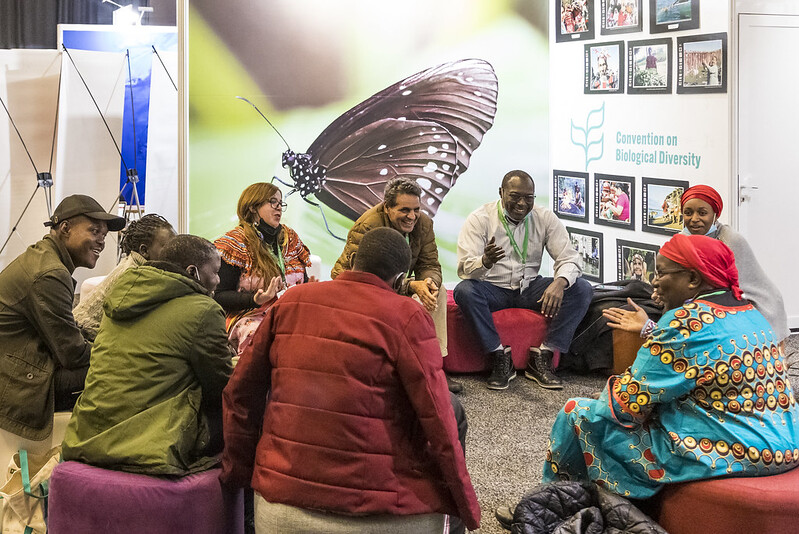The science is clear; biodiversity is in free fall. Indigenous peoples and local communities have been experiencing and denouncing the loss of biological and cultural diversity. This impacts billions of people’s daily well-being in untold ways. It is widely recognised that transformative actions from a local to global scale are needed to address these declines and secure a world in which people and nature can thrive’.
After years of disappointment, the stakes are high, and there is pressure on governments to develop coordinated and credible international policies to address the crisis.
After four years of negotiations, governments, otherwise known as parties to the Convention on Biological Diversity (CBD) at their 15th Conference (COP15), have just adopted the Kunming-Montreal Global Biodiversity Framework (GBF). Negotiations continued until the 11th hour. The Agreement was far from certain, owing to the different interests and perspectives around the table.
At the last moment, amidst the high drama, the GBF was adopted. The framework represents a set of goals and targets, alongside provision for monitoring and resource mobilisation, aiming to restore harmony between nature and people, through ‘bending the curve’ of biodiversity loss, preventing extinctions and restoring species and ecosystems. Its adoption has the potential to be a significant milestone, in a similar way that the Paris Agreement is seen for climate change. The GBF recognises the rights of Indigenous peoples and local communities (ILPCs), including their lands and territories, their free prior and informed consent, gender equality and intergenerational equity. It also calls for at least 30% of terrestrial, inland water, and coastal and marine areas to be effectively conserved and managed equitably amongst a range of other commitments.
Focali-SIANI, Swedbio and CSPR at Linköping University are convening a diverse panel of experts who participated in the COP15 to discuss the outcomes of the event and look forward to what is in store now it has been signed. There is a need to unpack the agreement and understand its implications from different perspectives, as well as what will be needed for the GBF to transform the relationships between people and nature successfully.
Issues that will be discussed:
- The biodiversity crisis and the need for coordinated transformative action.
- The role of different actors, including IPLCs and civil society, and recognition of diverse values and knowledge systems.
- The negotiation process and outcomes from COP15 and reflections on outcomes from different perspectives.
- The importance of IPLCs and civil society in the GBF outcomes.
- What happens now and how do different actors take this forward?
- What challenges and opportunities on the journey can already be foreseen? How can these be proactively addressed?
Speakers and panelists:
- Koji Miwa, Policy Researcher, Institute for Global Environmental Strategies (IGES)
- Charlotta Sörqvist, Senior Adviser, CBD chief negotiator, Division for Natural Environment, Ministry of Climate and Enterprise, Government Offices of Sweden
- Ramson Karmushu, Research Learning and Advocacy Manager Indigenous Movement for Peace Advancement & Conflict Transformation (IMPACT)
- Amelia Arreguín, UNCBD Women’s Caucus Coordinator, Women4Biodiversity
- Pernilla Malmer, Senior Adviser, Swedbio at Stockholm Resilience Centre
- Anna Axelsson, Senior Policy Specialist and Coordinator Biodiversity, Swedish International Development Cooperation Agency (Sida)
Co-Moderators:
- Stephen Woroniecki, Coordinator, Centre for Climate Science and Policy Research (CSPR) and Assistant Professor, Department for Thematic Studies Linköping University.
- Ana Carolina Marciano, Programme Officer, Swedbio at Stockholm Resilience Centre
Agenda:
13:30 Setting the Scene
13:45 Panel Discussion in two parts:
- Part 1) The negotiations process and the outcomes of the framework
- Part 2) Implementation of the framework for transformative change
14:35 Audience Q&A with panelists
Past related events:
The event builds on a series of events arranged by the involved partners focusing on interlinkages between biodiversity, climate, livelihoods, and rights issues. Partners involved as the Focali – SIANI collaboration and Swedbio have previously organised a dialogue on biodiversity and rights, alongside civil society organisations, and, with Sida, a Stockholm +50 event on “Transforming Relations with Land and Nature from an Intergenerational Perspective”. CSPR at Linköping University has for two years co-hosted with the Stockholm Environment Institute a post-match analysis of the Climate COPS with delegation leads, research, civil society and other representatives.
About the Organisers:
- Focali – The Forest Climate and Livelihood Research Network, hosted by Gothenburg Centre for Sustainable Development.
- SIANI – The Swedish International Agriculture Network Initiative, hosted by Stockholm Environment Institute.
- CSPR – Centre for Climate Science and Policy Research at Linköping University.
- Swedbio – A Program for biodiversity and equitable development at Stockholm Resilience Centre.
Please, register HERE to attend.
Speakers:
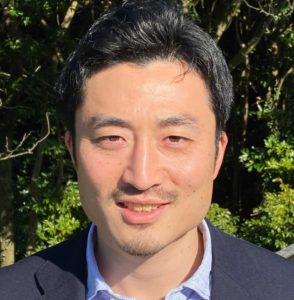 Koji Miwa is a policy researcher at the Institute for Global Environmental Strategies (IGES) in Japan. His current focus is on conservation of biodiversity and ecosystem services, blue carbon, sustainable tourism and disaster risk management. Koji is in also a fellow in the IPBES assessment on Transformative Change.
Koji Miwa is a policy researcher at the Institute for Global Environmental Strategies (IGES) in Japan. His current focus is on conservation of biodiversity and ecosystem services, blue carbon, sustainable tourism and disaster risk management. Koji is in also a fellow in the IPBES assessment on Transformative Change.
Prior to joining IGES 2019, he worked in the field of international environmental cooperation to promote sustainable agriculture, and forest and satoyama conservation in Southeast Asia as a NGO staff for five years. At the same time, as a university researcher, he engaged in research projects and surveyed the impacts of earthquake disasters on agricultural land and facilities in Nepal and Kumamoto, Japan. Koji Miwa is in addition an alumni from Stockholm University where he studied the master’s programme in Globalization, Environment and Social Change.
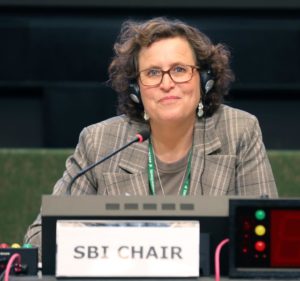 Charlotta Sörqvist is since 2017 the Swedish chief negotiator for CBD, she works at Ministry of Climate and Enterprise, Division for Natural Environment. Charlotta Sörqvist is also chair of the CBD Subsidiary Body for Implementation (SBI) and has led negotiations on several key issues regarding implementation of the Convention. Charlotta has over 20 year of experience from working with environment and climate change and have a bachelor degree in Economics and political science from Uppsala University.
Charlotta Sörqvist is since 2017 the Swedish chief negotiator for CBD, she works at Ministry of Climate and Enterprise, Division for Natural Environment. Charlotta Sörqvist is also chair of the CBD Subsidiary Body for Implementation (SBI) and has led negotiations on several key issues regarding implementation of the Convention. Charlotta has over 20 year of experience from working with environment and climate change and have a bachelor degree in Economics and political science from Uppsala University.
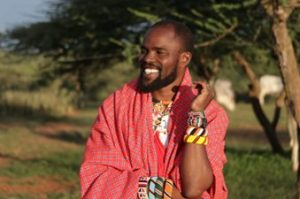 Ramson Karmushu Heads the Research Program at the Indigenous Movement for Peace Advancement and Conflict Transformation (IMPACT). He has been working at IMPACT since 2016 participating in research activities while coordinating researches teams within the organization and with partners as well as individual researchers. The researches employ a community action modal and are fundamental in the documentation of the Indigenous Peoples and Local Communities (IPLC) Traditional Knowledge, Cultures and Protection of their rights to land/ territories and natural resources in the Northern Kenya.
Ramson Karmushu Heads the Research Program at the Indigenous Movement for Peace Advancement and Conflict Transformation (IMPACT). He has been working at IMPACT since 2016 participating in research activities while coordinating researches teams within the organization and with partners as well as individual researchers. The researches employ a community action modal and are fundamental in the documentation of the Indigenous Peoples and Local Communities (IPLC) Traditional Knowledge, Cultures and Protection of their rights to land/ territories and natural resources in the Northern Kenya.
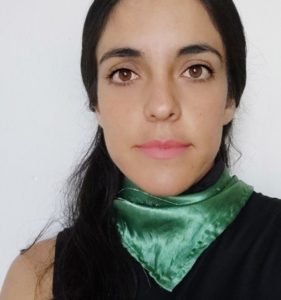
Amelia Arreguín is a specialist in gender, development and environment. She has worked in the non-governmental sector for over a decade, promoting democratic environmental governance while mainstreaming women’s and girls’ rights. Currently, she performs as the UNCBD Women’s Caucus Coordinator. Last year she was a Chevening Scholar (2021-2022) and got an MSc degree on Environment and International Development at the University of Anglia. She holds a BA degree in Political Communication from the Universidad Nacional Autónoma de México and postgrad education in feminist theories, community development and international cooperation.
She is the former coordinator of the Latin American and Caribbean Chapter and the Mexico Chapter of the Global Network of Youth for Biodiversity. And also makes part of the IUCN CEESP and IUCN CEC. On her spare time, she can be found birdwatching, cycling or hiking.
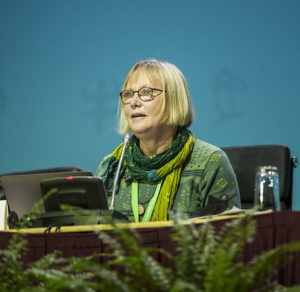 Pernilla Malmer is Senior Advisor at SwedBio at Stockholm Resilience Centre, and agronomist by training and has been working at SwedBio since 2005, in the nexus of biodiversity, human rights, and sustainable development, linking local to global scales, and practice to policy and science. Malmer is engaged in international policy processes related to biodiversity, particularly the Intergovernmental Platform on Biodiversity and Ecosystem Services (IPBES) and the Convention on Biological Diversity (CBD).
Pernilla Malmer is Senior Advisor at SwedBio at Stockholm Resilience Centre, and agronomist by training and has been working at SwedBio since 2005, in the nexus of biodiversity, human rights, and sustainable development, linking local to global scales, and practice to policy and science. Malmer is engaged in international policy processes related to biodiversity, particularly the Intergovernmental Platform on Biodiversity and Ecosystem Services (IPBES) and the Convention on Biological Diversity (CBD).
She has been following the CBD for over two decades, with focus on traditional knowledge, indigenous peoples and local communities full and effective participation, and gender equality. At COP15, she was part of the Swedish delegation working on these aspects.
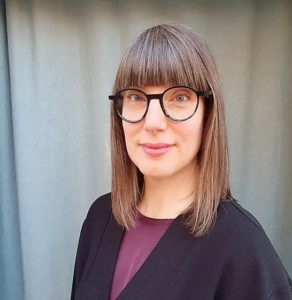
Anna Axelsson is a Senior Policy Specialist on Environment and Climate Change at Sida’s Policy Support Unit, with a special responsibility Sida’s thematic work on biodiversity. She is responsible for a government assignment that aims to strengthen Sida’s operations in terms of integrating biodiversity and increasing support to the protection and restoration of biodiversity, as well as supporting the government on issues related to the Convention on Biodiversity. Anna has 20 years of experience from working with environment and climate change issues in development cooperation, in different roles within civil society as well as the public sector.
She has worked with environmental assessments/environment mainstreaming, policy analysis and advocacy on climate change and biodiversity, methods development and communication as well as with project and program management on e.g. climate change adaptation, natural resource management, renewable energy, sustainable livelihoods and integration of a gender perspective in all of the above. Anna has a master degree in biology from Uppsala University.
